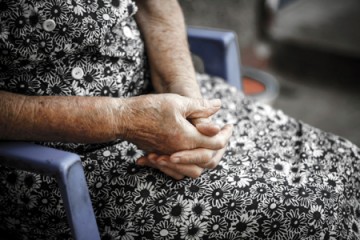An innovative new training program from the Johns Hopkins University School of Nursing will bring mental health services to underserved areas of Maryland by providing advanced training in psychiatric care to nurse practitioners working in these areas.
This one-year Post-Master's Psychiatric Mental Health Nurse Practitioner Certificate Program combines online classes with training at hospitals and clinics. Funded by a two-year grant from the Maryland Health Services Cost Review Commission and administered by the Maryland Higher Education Commission, the program will welcome its first 10 students in fall 2014. Later classes will likely be capped at 15 students.
"The beauty of this program is that we can train nurse practitioners who are already working with patients in rural areas in a more advanced level of psychiatric practice," says Karan Kverno, an assistant professor in the Department of Acute and Chronic Care. "The training is all online, but we are developing contacts in outlying areas where the NPs are living so that they may continue to work part time and keep up their practices while they are being trained."
The program meets a pressing need for more-efficient delivery of mental health services. Depression, anxiety, and substance abuse affect millions of Americans, but like other mental disorders, these conditions often go undiagnosed and untreated, particularly in rural areas with few psychiatric care providers.
About one-third of people in need of mental health care receive it from their primary care providers, yet very few primary care providers—whether physicians or nurse practitioners—receive specialized mental health care training.
The implementation of the Affordable Care Act in 2014 will increase access to mental and substance abuse services to an estimated 6 million to 10 million Americans, swamping an already burdened system. "Many of these people will come in through primary care providers," Kverno says. "The workforce is very strained in terms of psychiatric care providers."
In Maryland, approximately 62,000 children and adolescents live with serious mental health conditions, including autism, ADHD, anxiety and depression, and substance abuse. Those children are at a much higher risk of dropping out of school or becoming incarcerated.
One in five older adults also requires psychiatric services, but there is an extreme shortage of geriatric mental health care providers. Veterans, too, are underserved, Kverno says. "Access to mental health care in the VA system can be very slow."
The Johns Hopkins program will help alleviate these problems by training NPs to screen, diagnose, and, where appropriate, treat mental disorders in primary care settings. "You don't treat everything," Kverno says. "You screen, identify, and determine if a patient needs referral to a specialist; if it's something the provider is qualified to treat, then treating the patient in primary care accelerates and improves access."
Advanced courses in the neurobiology, diagnosis, and treatment (psychopharmacology and brief psychotherapy) of mental and addiction disorders will provide the theoretical backbone of the program. Two semester-long clinical practicums in which students work under the guidance of local psychiatrists, psychiatric nurse practitioners, and other mental health providers will round out the curriculum.








